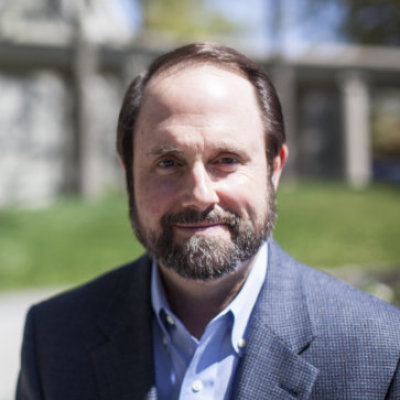Do You Have Paraskevidekatriaphobia?

Welcome to the first Friday the 13th this year. (You can look forward to another one in July.) If you're afraid of today, you might have "paraskevidekatriaphobia" (from the Greek words for "Friday" and "thirteen").
If so, you're not alone.
The Stress Management Center and Phobia Institute estimates that seventeen to twenty-one million people in the US are afraid of this day. Some avoid doing business, taking flights, or even getting out of bed. As much as $900 million is lost in productivity as a result.
Here's the good news: studies seem to indicate that fewer calamities occur on this day, perhaps because people are more careful or choose to stay home.
"Unease and fears of misfortune"
I can see why people would feel afraid today.
France's President Emmanuel Macron says he has "proof" that the Syrian government used chemical weapons to attack the town of Douma last weekend. According to today's BBC News, Russia is warning the US that retaliatory air strikes in Syria could spark a war between the two countries.
Today's Wall Street Journal reports that the White House plans to escalate trade pressure against China. In response, the Chinese are aligning countries against the US, especially in Europe.
Meanwhile, according to a survey released yesterday for Holocaust Remembrance Day, 70 percent of Americans say fewer people seem to care about the Holocaust than in the past. Fifty-eight percent believe something like the Holocaust could happen again. That's cause for grave concern.
According to the National Institute of Mental Health, 19.1 percent of US adults had an anxiety disorder in the past year. That equates to twenty-four million people. Many of these disorders relate to fears about the future.
As you begin what National Geographic calls "the dreaded day [that] continues to inspire unease and fears of misfortune," let's consider a biblical response to fear of the future. The answer may surprise you.
The best way to prepare for the future
God's word cautions us: "Do not boast about tomorrow, for you do not know what a day may bring" (Proverbs 27:1). This is a command followed by a fact, not an option followed by an opinion. Every day is a gift; none is promised to us.
However, we do know what one day will bring: "Nations will fear the name of the Lord, and all the kings of the earth will fear your glory" (Psalm 102:15). One day the One by whom "all things were created" (Colossians 1:16) will return to his creation (Acts 1:11). As C. S. Lewis observed, "When the author walks onto the stage, the play is over."
The best way to prepare for the future is to live as though it were today.
We are instructed to "seek first the kingdom of God and his righteousness" (Matthew 6:33). To do this, live as if the King you serve was watching you now. Of course, he is, since "no creature is hidden from his sight" (Hebrews 4:13).
So, ask yourself all through the day: If I knew my Father was watching me now, would I change anything?
If this idea is too esoteric, imagine that your spouse or children or grandchildren could read your mind and watch your actions. What would you change?
Every moment is to be spent in this way. To cite C. S. Lewis again, humans have the curious notion that our time is ours. The fact is, you and I can neither make nor destroy a single moment. Every minute is God's gift to us, to be used for his glory and our good.
In short, we are to be the people we would be if we knew Jesus was returning today.
We're one day closer to that day than ever before in human history. One day you and I will go to him or he will come to us.
I don't know that I will meet God today. But I don't know that I will not.
"An uncontestable meaning of goodness"
In Anna Karenina, Leo Tolstoy described the spiritual awakening of a character named Levin: "My life, my whole life, independently of anything that may happen to me, every moment of it, is no longer meaningless but has an uncontestable meaning of goodness, with which I have the power to invest it."
To find "an uncontestable meaning of goodness" in our lives, Jesus calls us to trust the future to his providence and live this day in his presence and purpose. Then we can say with A. W. Tozer, "The only fear I have is to fear to get out of the will of God. Outside of the will of God, there's nothing I want, and in the will of God, there's nothing I fear."
Are you in the will of God today?
Originally posted Friday at Denison Forum.



























